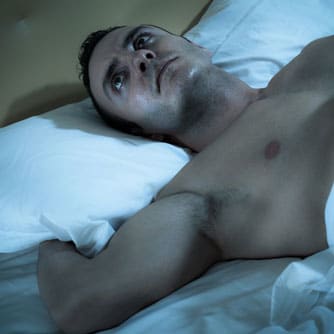Previously, studies have identified blood-based markers of brain injury. Neuron-specific enolase (NSE) is a glycolytic enzyme that is localized primarily to the neuronal cytoplasm; S-100B is a calcium-binding protein localized to astroglial cells. In adults, CSF and serum concentrations of NSE and S100B have served as markers of neuronal damage after traumatic brain injury (TBI). Christian Benedict, from Uppsala University (Sweden), and colleagues studied 15 normal-weight men: in one condition they were sleep-deprived for one night, while in the other condition they slept for approximately 8 hours. The team observed that a night of total sleep loss was followed by increased blood concentrations of NSE and S-100B. The lead author comments that: “our results indicate that a lack of sleep may promote neurodegenerative processes.”
Sleep Shortage May Damage the Brain
Christian Benedict; Jonathan Cedernaes; Vilmantas Giedraitis; Emil K. Nilsson; Pleunie S. Hogenkamp; Evelina Vagesjo; et al. “Acute Sleep Deprivation Increases Serum Levels of Neuron-Specific Enolase (NSE) and S100 Calcium Binding Protein B (S-100B) in Healthy Young Men. SLEEP, Volume 37, Issue 01, pp. 195-198; January 1, 2014.
RELATED ARTICLES




